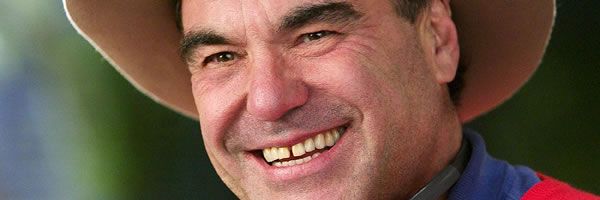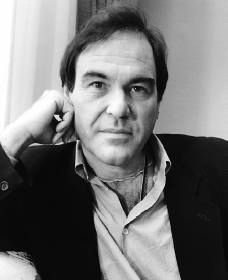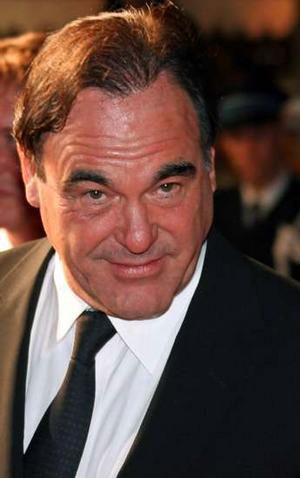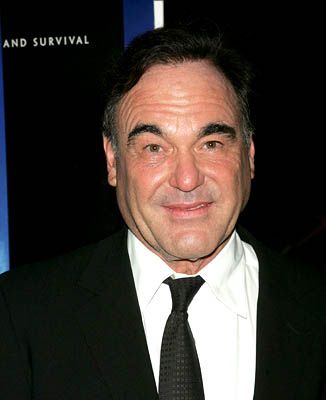In the middle of editing his sequel to Wall Street, Wall Street 2: Money Never Sleeps, filmmaker Oliver Stone made an appearance at the Television Critics Association Winter Press Tour to talk about his 10-part documentary series Secret History of America for Showtime.
Airing in the Spring, the series focuses on human events that, at the time, went under-reported, but crucially shaped America's unique and complex history over the last 60 years. A small group of historians and archivists have meticulously combed through the national archives of the U.S., Russia, South Africa, England, and Japan, in search of papers, letters, memoranda, film and photographs to assist in the documentation of unknown historical figures and events that have rarely, if ever, been revealed.
After the panel for this project, Oliver Stone also took some time to give some updates on Wall Street 2: Money Never Sleeps, due out on April 23rd. Check out what he had to say, after the jump:
What do you have to say about the financial industry in Wall Street 2?
OLIVER STONE: I can't really tell you now because that's not the subject matter. I did have a wonderful experience making the film. I learned a lot. I had a great time. I really did. It's changed a lot on Wall Street.
Can you comment on the state of movie industry?
STONE: It's very good, absolutely. Better than last year and the year before. It changes, from year to year, but I think the filmmakers are still managing against sometimes large corporate odds to make these good movies.
Do you think part of that is the technological advancement?
STONE: Oh, it's wonderful. It's incredible. [James] Cameron has broken new ground. He's a visionary.
Would you ever want to make a big film like that?
STONE: If I could. I think he's a genius. I have a different kind of strength. Although I've done some good technical work and I might surprise you still, he's really done what Cecil B. DeMille did in another age.
Would you ever do a 3-D movie?
STONE: I have nothing against it. It's a wonderful idea, if it can be well used. But, not about domestic life.
How do you chose your projects?
STONE: On a case by case basis, honestly. It's also about how the year has developed and how I feel and my energy levels, and all those issues.
What interested you about this particular project?
STONE: Two years ago, I got it. I have children and I can. I want to leave a legacy behind. My films are important to me, and I've never really ever attempted a 10-hour documentary like this.
How did you meet these people and get involved?
STONE: I've known Peter Kuznick since 1995. Listen, my films have taken me in the direction of history. I talk to a lot of intellectuals, on the story. I care.
Are you thinking about spending the rest of your career doing documentaries?
STONE: Well, I love films. I love fiction films, too. I do. I love making them, but it has to be the right one. Hopefully, I'll never become a director for hire. It's horrible to make a film that you're not really interested in.
Is it true that you have two films in production?
STONE: No, just Wall Street. We're in editing.
What's different between the time the first film came out and our current time?
STONE: It's changed enormously in 20 years.
Did you ever think that you'd do a sequel to any of your films, since you don't really do that?
STONE: No, I never did. It's 22 years later, right? You don't wait that long to do a sequel. Wall Street changed so much, and it became an interesting story again.
Did real world circumstances while you were making the movie cause you to make changes, in the middle of the process?
STONE: Oh, we had a lot of research. We were on the street, every day. We saw people and, of course, we listened as much as we could. Of course you have the bankers point of view, too.
What was it like reuniting with Michael Douglas and bringing him back to one of the most iconic roles he's ever played?
STONE: It was interesting and I think that he really delivers an interesting version of Gordon Gekko, 22 years later. It's not the same man. Age has made him suffer. Also, I would point to Shia LaBeouf as the motivator for the movie. He's the young spirit that's learning.
Are there any things about Wall Street 2 that we don't know about? Will there be storyline twists?
STONE: There are quite a few twists. I don't want to give it away.
Were you able to include Charlie Sheen, at any point in the movie?
STONE: Charlie has a cameo, yeah.
Do you have any reaction to what's happened to him recently?
STONE: No. I'm not really up to date on it. It wouldn't be Charlie, if he wasn't in trouble.
Not only did people hate Gordon Gekko, but many admired him. How careful were you, in the crafting of his character, this time around?
STONE: Oh, nothing is sacred for me. I like to go the other way, if anything.
Did you shoot Wall Street in New York?
STONE: We shot everything in New York, yeah.
Was there a different feel this time around?
STONE: Oh, yeah.
What was the feeling this time around?
STONE: Oh, it's much more computerized and younger, and people burn out faster. The money is much bigger and the computers are doing a lot of work. It's a lot of artificial intelligence.
How do you think history books will represent this time we're living in now, from late Bush into Obama, and the economy?
STONE: The myth emerges. I can't really tell you in detail what I think will happen. We're locked into a national security state and how we got here is crucial to understand because that determines the entire debate in America.
Do you think the optimism with Obama was misplaced?
STONE: I hope not. I think he's a very bright man and I'm really hoping and pulling for him. I'm obviously very disappointed. I was very clear about my feelings about his move in Afghanistan. But, he won and imagine if McCain were in office. That's all I can say.
Do you have any idea what motivates you to pick a certain kind of project, at any given time?
STONE: That's what makes it fun, right? It's what fits that form and what you want to say. In this case, it was a big project. It's a lot of work. I'm putting away Wall Street, at the same time. It's a lot of work.
Is Hitler someone that you would ever have an interest in making a film about?
STONE: No. They did a very good film about him, called Downfall. No. Hitler didn't change the course of the world. There were many factors which resulted in World War I.
Would you ever do a non-documentary series with Showtime?
STONE: I did The Day Reagan Was Shot. It was very good. It was a docu-drama. I did The Last Days of Martin Luther King as a documentary. No, I haven't done that. I have nothing against them. I'm fascinated by them. I think maybe that's the future.
In all of your research, who have you found to be the most misinterpreted person in history?
STONE: Oh, wow. Let's start with Henry Wallace in 1944. There's just so many of them. There are so many that got neglected and buried. William Jennings Bryan comes to mind. Gorbachev comes to mind.
As a young man, what was the historical thing that grabbed you and kicked off this passion for you?
STONE: I don't know. Maybe Custer's Last Stand.
How did you go about obtaining the material for this?
STONE: We have a wonderful set of producers who are digging around the whole world from Russia to Germany. It's a global search.
What do you want people to take away from Secret History of America?
STONE: I just wanted to make a really superb work. I wanted you to remember me, buy it and I hope that it really hits you with impact. I mean that. I like the idea that I can make material that makes you think.
Are you producing the Pablo Escobar movie?
STONE: No, I'm not.





